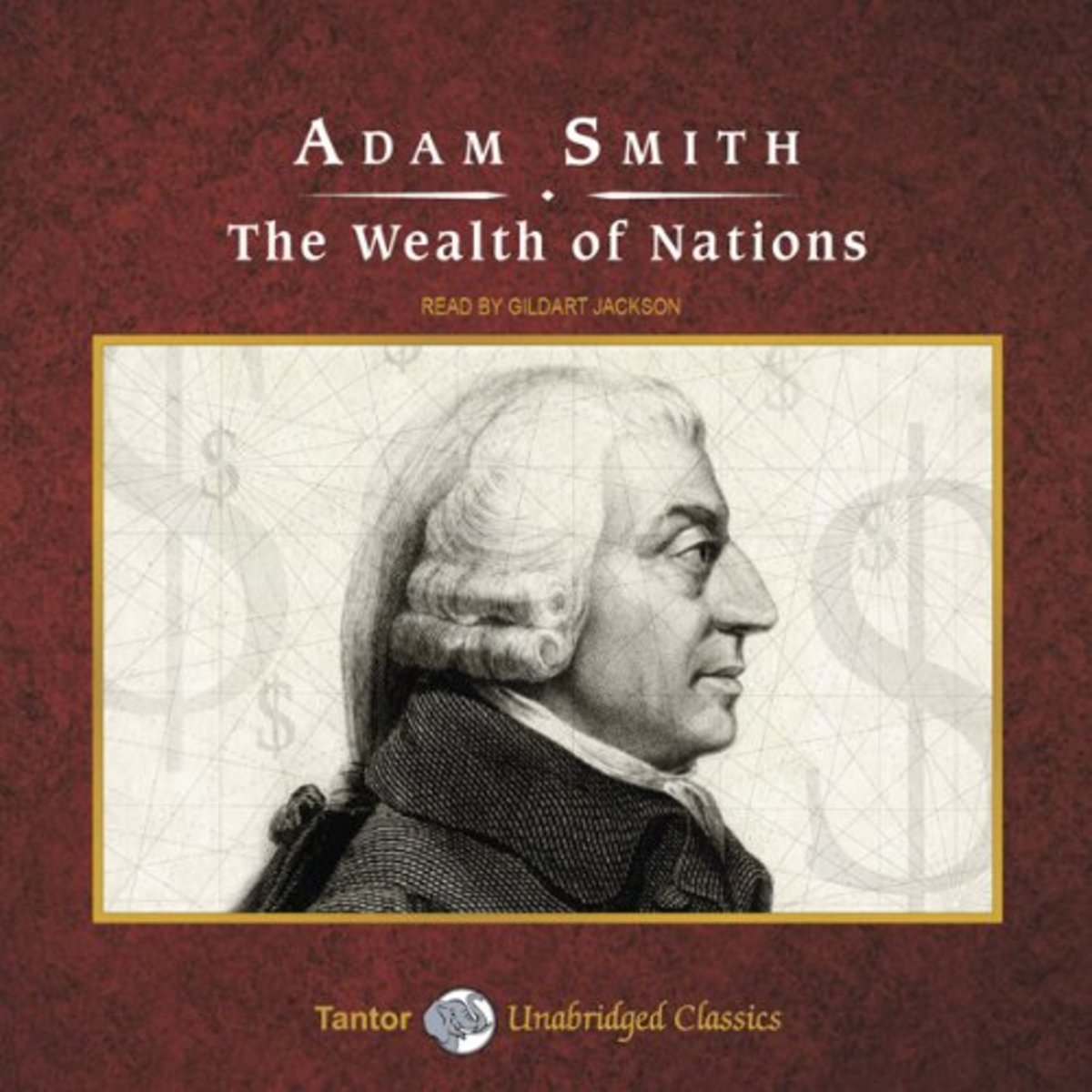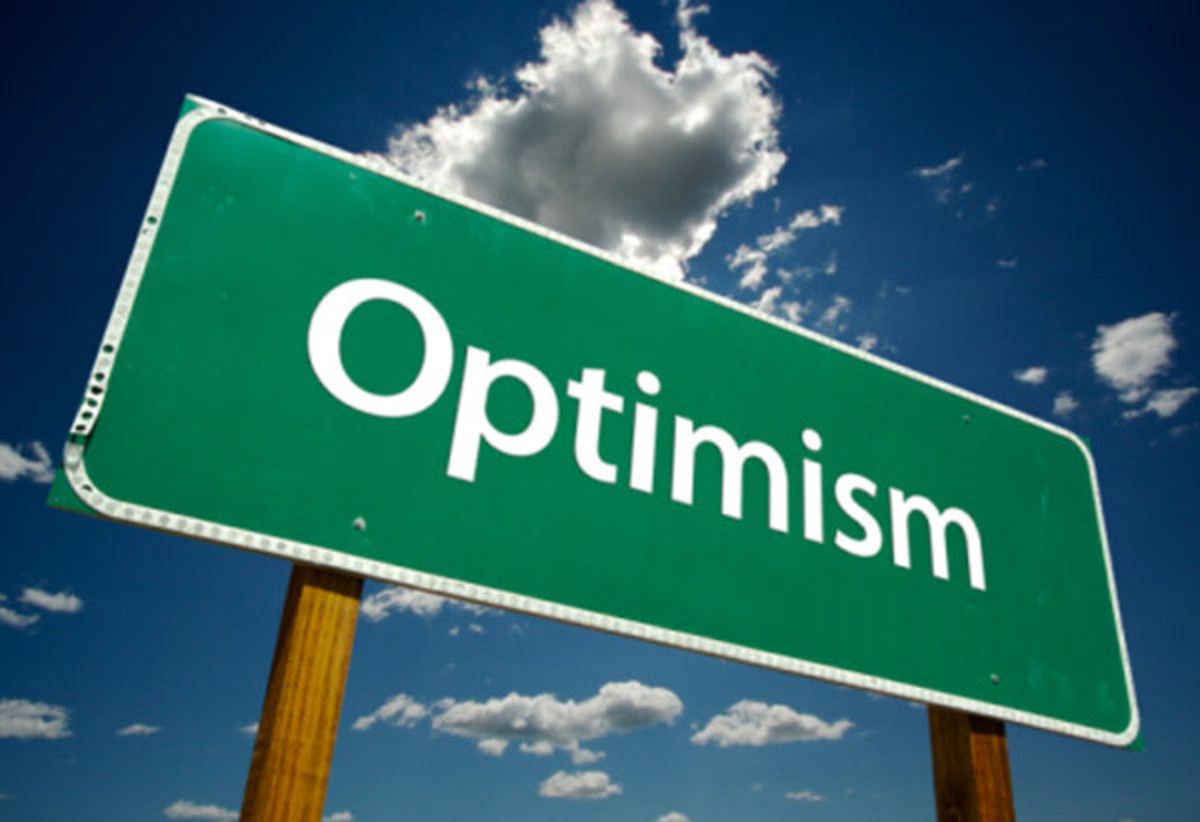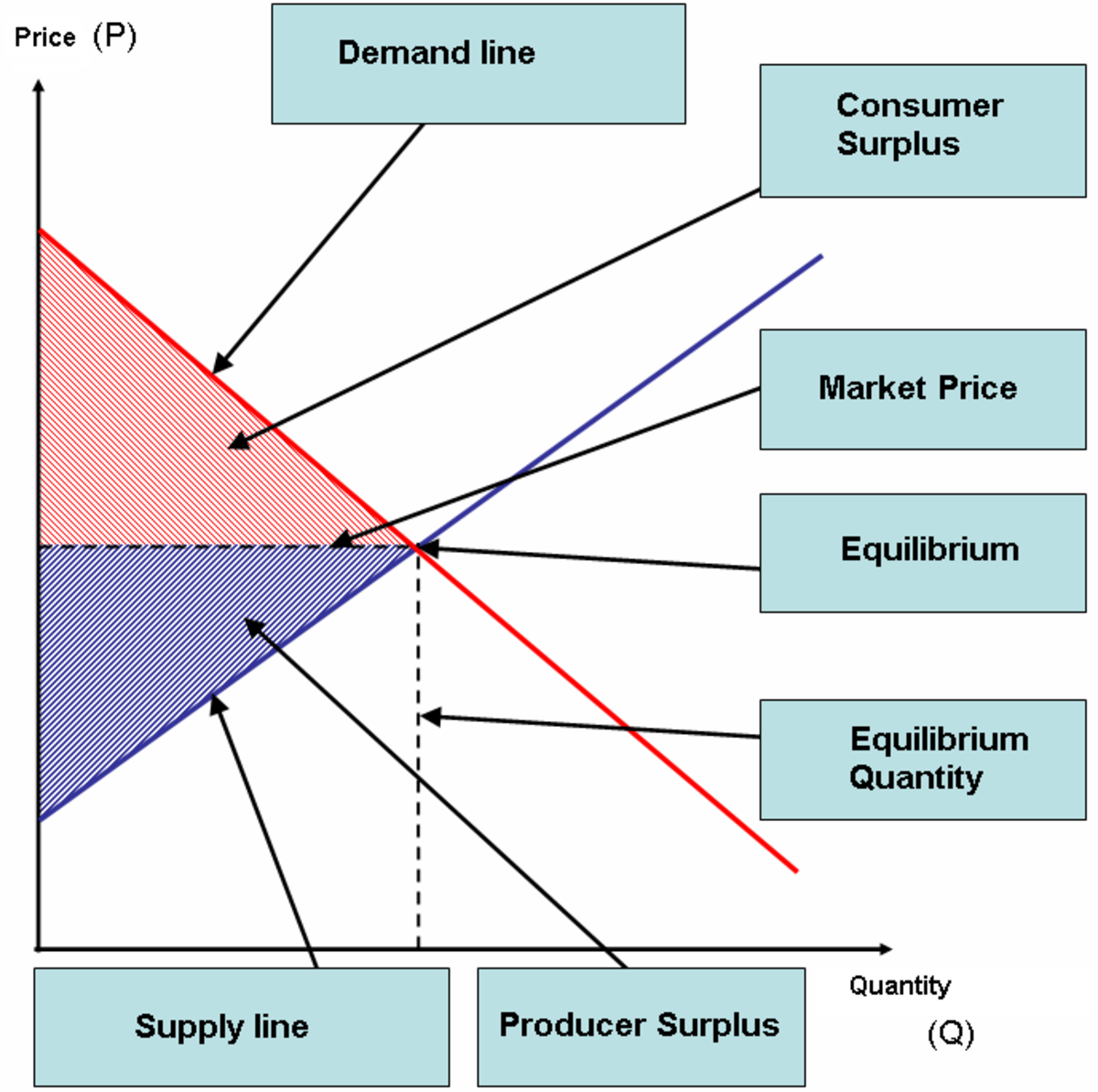Adam Smith was not a neoliberal free marketer and wanted state intervention in the market
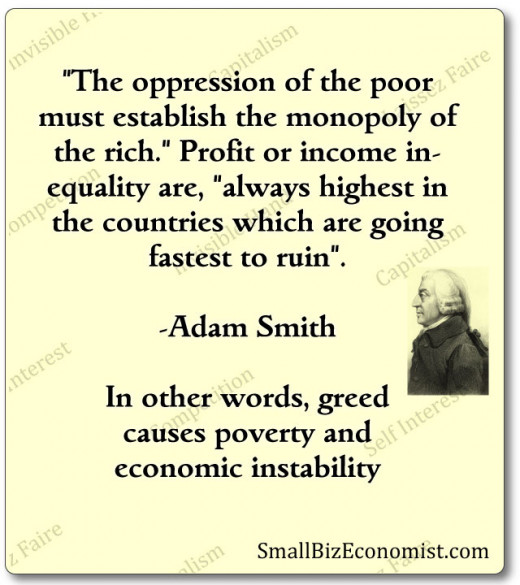
Were he alive today Adam Smith would oppose free market neoliberalism. He would also see striking parallels between his era and the twenty first century and despair that despite the vast changes in society since the publication of Wealth of Nations Business is still promoting its own interest by working against the benefit of the wider society and has again captured the state with laws mad in its favour.
Right wing neoliberal policy makers and economists have hijacked Wealth of Nations and created a fictitious Adam Smith with policy determined from sound bytes in turn culled from the writings of those economists who have read Wealth of Nations through the lens of their own theories and prejudices. These economists, doubtless ignorant of history and blind to semantic shifts in the English language between 1776 and the late twentieth century lacked the skills and patience to evaluate Smith properly and recognise the inconsistencies in Wealth of Nations and interpret it in the light of the concerns of his time.
This note is based on a set of interdisciplinary essays by academics who had the necessary time and high boredom threshold to evaluate Wealth of Nationsfrom various perspectives and highlights some parallels between the late 18th century and the20th century resurgence of doctrinaire free market fanaticism.
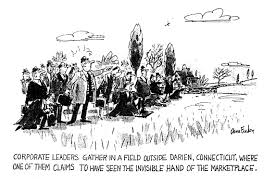
Smith's World
Like the 21st century Smith's world was a world of intellectual and political ferment, changing, perhaps at a slower pace than today. The Industrial Revolution was in full flow, the population were moving, often reluctantly, from the country to the cities and the new manufactories, the canal system was revolutionising the distribution of goods ( using imported Irish labour under the name Navigators or Navvies) and as a result of the move from an agricultural society to one based on wage slavery there was a growing counter pressure for democracy and freedom. Unions (Smith calls them combines) were being formed despite legal persecution and some executions of union leaders. Wealth of Nations was published in the year of the American Revolution and what we know as Modern Science was developing, influenced by Newton's ideas of physics some 100 years earlier.
And then there was the finance industry.
Smith wrote Wealth of Nations after a major credit crunch that started in 1772when a bank director fled Britain to avoid repaying a debt. The resulting panic led to a loss of trust in the banks that resulted in 20 important banking houses going bankrupt or refusing to repay depositors.
The credit boom from the mid 1760s to the early 1770s fuelled the expansion of manufacturing and mining in Britain and its American colonies.
The credit boom in the late 20th century resulted in a similar expansion of the economy and the creation of bubbles one of which burst most spectacularly in 2008.As with theSouth Sea Bubble of 1720 the lessons of the dot com bubble of the early 2000s were forgotten with, in the worlds of Charles McKay “Every fool aspiring to be a knave.The biggest difference was that in the 1990s and 2000sthose fools included a great mass of the general public whereas in the 18th century it was the rich who gambled and suffered most.
The 18th century credit boom had foundations of sand weakened by speculation and the establishment ofdodgy financial institutions. In Scotland for example bankers would draw and redraw fictitious bills of exchange ( a cheque is an example of such a bill) [2].As in 2007-8 signs of an impending crisis, such as overstocked shelves and warehouses in the American colonies were overlooks, ignored or discounted.
It is tempting to considerthe use of bills of exchange as the 18th century equivalent of the 21st century sub prime mortgage backed securities and other complex instruments, such as derivatives, that led to the 2008 crash.Eventually as with a Ponzi Scheme the whole house of cards collapsed
In both crises the real economy suffered, but in the later crisis banks were bailed out by governments, with a couple that were thrown to the wolves,and proceeded with business as usual, namely ripping off their customers (referred to by Goldmann-Sachs as “muppets”) and anyone else they could.
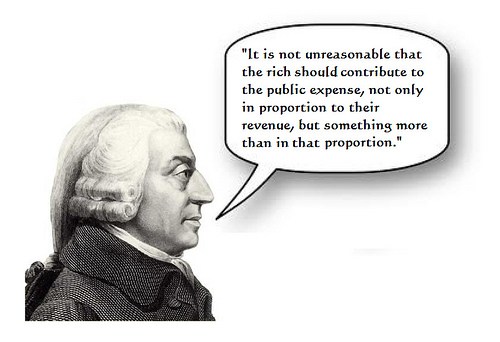
Smith, Business and Government
Unlike today's neoliberals Smith had a health scepticism about business and his desire to remove government interference arose because he saw big business had captured the state and being given the opportunity to write laws in is own favour, just as today the governments of the UK and US are, and have for decades been in thrall to the finance industry.What he saw irritated him greatly leading to his support for trade unionists and his famous quote, still true today:
People of the same trade seldom meet together, even for merriment and diversion, but the conversation ends in a conspiracy against the public, or in some contrivance to raise prices…. But though the law cannot hinder people of the same trade from sometimes assembling together, it ought to do nothing to facilitate such assemblies, much less to render them necessary.
And he had a similar cynicism concerning government that also rings true
Civil government, so far as it is instituted for the security of property, is in reality instituted for the defense of the rich against the poor, or of those who have some property against those who have none at all.'
He also realised that the interests of big business are almost never the same as the interest of society
To widen the market and to narrow the competition, is always the interest of the dealers…The proposal of any new law or regulation of commerce which comes from this order, ought always to be listened to with great precaution, and ought never to be adopted till after having been long and carefully examined, not only with the most scrupulous, but with the most suspicious attention. It comes from an order of men, whose interest is never exactly the same with that of the public, who have generally an interest to deceive and even oppress the public, and who accordingly have, upon many occasions, both deceived and oppressed it.
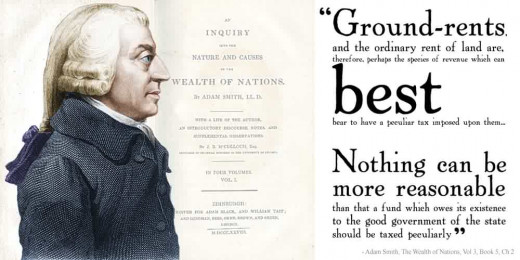
the Invisible Hand
Smith promoted the idea that everyone acts in their own interest and that this tended to result in an equitable distribution of resources as if by the action of an invisible hand ( a phrase mentioned just once in Wealth of Nations). Smith was talking about what we would nowadays call small business, shopkeepers, farmers and craftsmen trying to get enough to feed themselves and their families. In those days maximising profit meant maximising employment. Nowadays it means minimising employment, which does NOT distribute resources fairly and inevitably leads to widening inequality, which is increasingly being blamed for many of the word's current economic problems.
Modern Business libertarians took Smith's “Invisible Hand”as a legitimisation of greed assuming unbridled greed will benefit everyone via the now discredited notion of Trickle Down Economics.
In 2008 we saw how this worked out with CEOs making millions redundant then rewarding themselves with $100 Million Plus bonuses as a reward for cutting costs.
When Smith talked of the market he meant what might be called Commercial Society or more loosely, Industry and Commerce
Smith wanted Government to intervene in the economy so that when everyone in the market acted in their own interest they furthered the good of all. The “Invisible Hand” had to be shaped and placed in position and its power maintained by constant intervention.
Smith was much more aware than modern economists (who seldom if ever discuss power, class or gender) of how inequalities of power could distort the market and how those with power used it to attack the poor, who were fair game because the Protestant Work ethic, having taken in the Just world Fallacy, implied that poverty was a result of having displeased God and so the fault of the poor.
After Smith died in 1790 he was cast as an advocate of Laissez Faire Economics. Wealth of Nations was co-opted into a political tool for preventing legislation designed to protect employees based on his supposed opposition to any government interference in the market, though Wealth of Nations does not support this.
In fact parts of the book show Smith as much more “left Wing” than his present day supporters would admit.
All in all it seems that Adam Smith would have run screaming from any modern Economics department – or been thrown out on his ear.
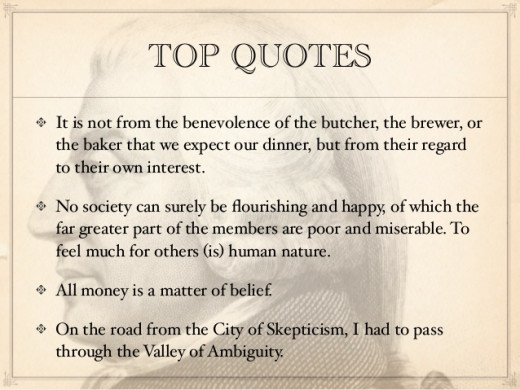
The wrap
Generally speaking Smith's philosophy was broader and more humane than the neoliberal economics that arose in the 19th century.Smith had views many neoliberals, and most of the business community, would regard as dangerously subversive today
He also wanted careful and responsible government intervention to promote the good of all.
Wealth of Nations strived to provide an impartial view of economics based on a mixture of observation and common sense. It is therefore of some value provided it is read with care and readers remember he was concerned with free trade not laissez faire Economics
Notes
-
A bill of exchange is an instruction by one person (The drawer) to a second person (the drawee) to pay a third person(the payee) money.Like a banknote or a cheque with no payee name the bill can be passed from one person to another.
-
Adam Smith's Wealth of Nations: New Interdisciplinary essays (ed) Stephen Copley and Kathryn Sutherland. Manchester University Press 1995, ISBN 0-7190-3943

